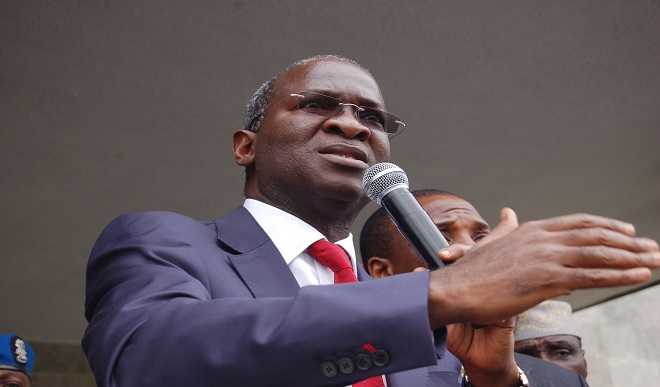
There is no doubt that Nigeria’s Power , Works and Housing Minister Mr Babatunde Fashola is annoyed with Nigeria’s power distribution companies over what he called their inability to deliver electricity to Nigerians especially at this point in time . Why the taciturn but well admired Nigerian leader and Senior Advocate of Nigeria should blow his top , and vent his spleen on the discos is however what needs to be found out and urgently too . That the Minister blamed the discos for ageing equipment they bought from government at privatization in 2013 is even more alarming and disturbing as the principle of caveat emptor or buyer beware does not sound fine from the mouth of the seller, which is the government that Fashola represents. This anger then smirks of brazen misuse of power by a Minister who is very much aware of the problems of the power industry enough to know that the failure of electricity supply in Nigeria does not lie at the doors of the discos alone.
Actually , telling the discos to perform or fold up is not only uncharitable of the Minister but it is a directive that shows the underlying frustration of the Power Minister in living up to his promise in his Road Map To Power Supply last year on achieving incremental supply before steady and sustainable power supply. The Minster needs to be reminded urgently that the factors that made his wise differentiation of the problems on the ground still exist, even more formidably now and they have a lot to do with many important stake holders in the industry and not discos alone. Which then means that in highlighting the discos alone for non performance on electricity delivery, the Minister was indulging in sheer scapegoating. That too is not fair to disco owners who are patriotic Nigerians who have invested in the distribution sector of the power industry with their hard earned money and capital but have nothing to show because they have been sold short on their investment by a government that knew the state of the infrastructure they were buying then, but encouraged them by promising to create the environment for their investments to yield dividend to the mutual benefit of the buyer and seller. That the Minister is now invoking the market dictum of buyer beware is certainly not consistent with the ethics of any sale, not to talk of a very expensive one as privatization of electricity which brought the discos to the delivery sector of our power industry in 2013.
Instead of writing the discos off when he now understands the problems of the industry, he should with the benefit of hindsight retrace his steps and recover the momentum which he had last year but which appears to be lost with his present anger with the discos. The Minister last year urged Nigerians to be ready to accept increased electricity tariffs now and made an analogy with the gsm industry and formerly very high prices of sim cards and mobile phones which came down drastically even as Nigerians got used to them and accepted them as part of their way of life and culture. That was a Minister showing empathy with the problems of the power industry and doing the correct and expected thing to sell the concept of sustainable, available and affordable electricity to Nigerians . It was a very good path that the Minister took at the time and it is one he should continue on and not abandon or deprecate as new challenges confront both government and discos from the nagging problems of bringing power to Nigerians by all means, and as soon as possible. The Minister is well advised to accommodate the discos and help them face the challenges of privatization and the expected dividends of efficiency and service delivery inherent in such process and that means being pragmatic in helping the discos live up to their mandate and billings. Anger is not a policy and is certainly out of the question given the problems confronting the discos which the Minister is very much aware of and to which as a leader of the power industry he must find answers. That really is the crux of the matter and not scapegoating of discos .
Abubakar, an engineer, writes from Kaduna

 Join Daily Trust WhatsApp Community For Quick Access To News and Happenings Around You.
Join Daily Trust WhatsApp Community For Quick Access To News and Happenings Around You.


